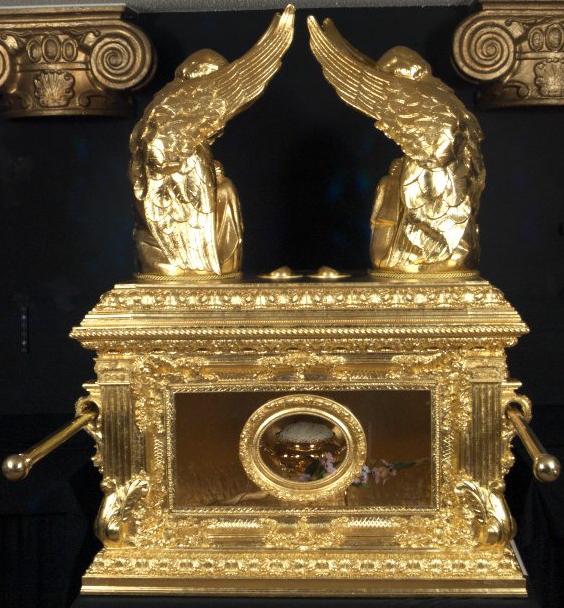
I was reflecting on Tisha B'Av this year and remembering last Tisha B'Av, where I was and where we were as a klal. After Kinus until chatzos, and then early Mincha, my wife and I went to Manhattan to join in the rally on behalf of our brothers in Gush Katif. Once again today, Israel is very much in the news. Thank G-d, this year, I think we are in a better position than last year. Last year, it was Jew vs. Jew. Sinas Chinam at its finest (unfortunately). BH, this year, Jews in Israel and the world are united. Opinion polls in Israel have never EVER been so one-sided, hopefully this is a sign of good things to come. Ahavas Chinam undoing the Sinas Chinam.
The fact that we figured so prominently in the news both years made me think.....
If we look at the haftoros of the seven weeks between Tisha B'Av and Rosh Hashana, they follow an interesting pattern. The first is "Nachamu, nachamu ami, yomar elokaichem". Hashem tells the bnei yisrael through the navi that they should be consoled. What is the next haftora, klal yisrael answers, "vatomer tzion azavani Hashem, VaHashem shaichani" Hashem has forsaken and forgotten us. Next comes "aniyah soara, lo nuchama" Hashem talks to the inconsolable one (bnei yisrael) and then "anochi anochi hu menachemchem" Hashem says I will console you and then "rani akara lo yalada" Hashem is telling us to sing, "kumi ori ke va oraich" Rise and shine for your light has arrived and then we say "sos asis baHashem". What was the difference between nachamu nachamu ami and anochi anochi hu menachemchem? The Rambam writes that any nevuah that comes through a navi cannot be reversed. Why? Because there needs to be a way to test a navi and see if he is a real navi or a navi sheker. A negative nevuah can be reversed through teshuva, but a positive one cannot be reversed. In contrast, we see by Yaakov Avinu that Hashem made certain promises directly to Yaakov and Yaakov was concerned, "katontee mikol hachasadim" he was afraid that he might have sinned and therefore undone Hashem's promise. The difference is that there is no need to (chas v'shalom) test Hashem and therefore if he says something directly it can be reversed, but if it's said through a navi it can't be. Now we can understand, Hashem originally said through the navi, in third person, you will be consoled. This is an iron clad guarantee, you can take it to the bank. Klal Yisrael responded and said, that's nice, but we don't want guarantees. We want YOU Hashem. When Hashem himself in first person said I will console you, then klal yisrael was happy and rejoiced.
Every jewish child is taught that the keruvim in the bais hamikdash were miraculous. When Klal Yisrael was doing the will of Hashem the keruvim were facing each other. When they were sinning, and opposing the will of Hashem, the keruvim were facing apart. One would think that while the bais hamikdash was being destroyed they were obviously facing apart, but that's incorrect. When the Romans entered the kodesh hakodoshim, they found the keruvim intertwined in a tight embrace.
We don't say tachanun on Tisha B'Av or during the Mincha before, because Tisha B'Av is a moed, loosely translated as a holiday. This is hard to understand. How and why would we call it a holiday? The answer is that the word moed comes from the root/shoresh, vaad. Vaad is a meeting. What is a meeting? A meeting can be good or a meeting can be bad, but one thing that we know for sure is that a meeting is a meeting. On Tisha B'Av good or bad, Hashem is in our midst. He is very much here with us (even more so than usual). Similar to the way Hashem was with us even though He was punishing us and evicting us from his holy "House" here on earth. Like a father who punishes his child, even as Hashem was punishing us, he was hugging and consoling us, making sure we knew that he still loves us.
Through the At-Bash method we connect the first night of Pesach with Tisha B'Av (the second night to Shavuous, etc). The practical results are that the first night of Pesach will always fall out on the same day of the week as Tisha B'Av of that year. We also eat a hard boiled egg at the seder and one of the reasons is because of the Pesach-Tisha B'Av connection and zecher l'churban, etc. I'd like to add my own thought. Any gezaira shava, any comparison is a two way street, not just one. The same way as on Pesach we remember the churban because of Tisha B'Av, I think it's important that on Tisha B'Av we also remember Pesach and the aspect of geula. Chazal tells us that Mashiach is/was born on Tisha B'Av.
I would like to request of my readers that everyone should do or take on one thing, one "chumra" this Tisha B'Av that they never have before. If we mourn and do our avoda and tikun/kinut properly may Hashem grant us his promise that we will merit to see the consoling and rejoicing in the rebuilding of the bais hamikdash and yerushalayim, bimheira byameinu, AMEN!









